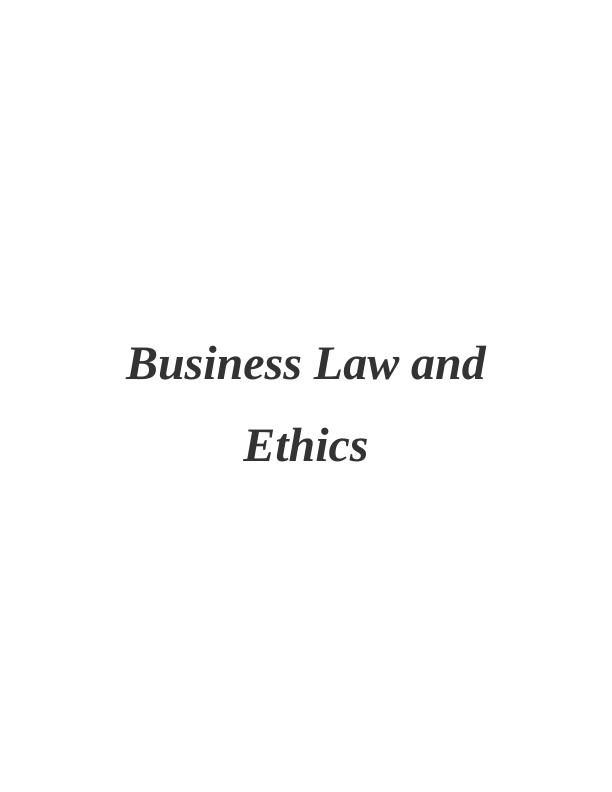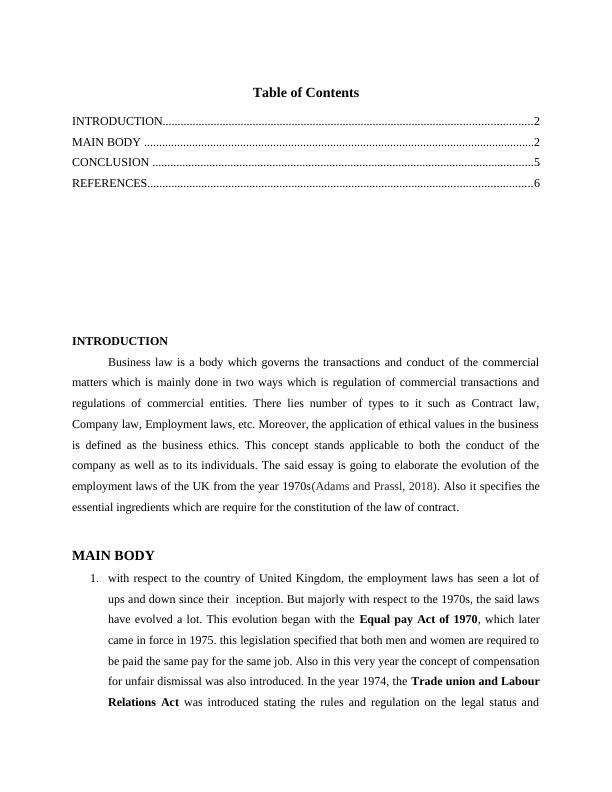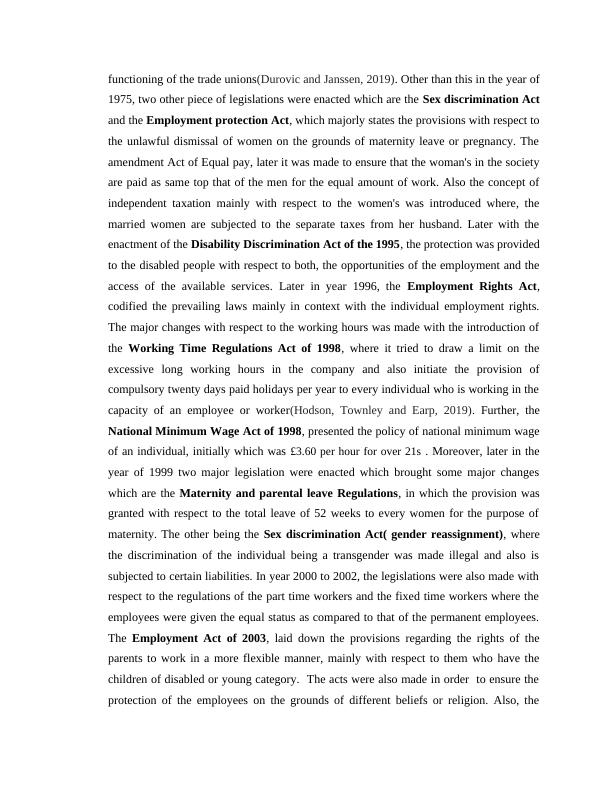Evolution of UK Employment Laws and Essential Elements of Contract Law
6 Pages1846 Words463 Views
Added on 2023-06-13
About This Document
This essay discusses the evolution of UK employment laws from the 1970s, including the Equal Pay Act, Trade Union and Labour Relations Act, and Employment Rights Act. It also covers the essential elements required for a valid contract, such as agreement, contractual intention, and consideration. Business law and ethics are explored in this informative essay.
Evolution of UK Employment Laws and Essential Elements of Contract Law
Added on 2023-06-13
ShareRelated Documents
End of preview
Want to access all the pages? Upload your documents or become a member.
Employment Law and Company Formation in UK
|9
|2015
|90
Evolution of Employment Law and Essential Ingredients of Contract
|7
|1978
|138
Gender Pay Gap in UK: Analysis and Recommendations
|11
|3912
|376
Employment Law and Company Law of United Kingdom
|9
|2719
|308
Business Law and Ethics individual essay
|7
|2007
|267
Law and Equality at Work: Case Law
|12
|1960
|374



